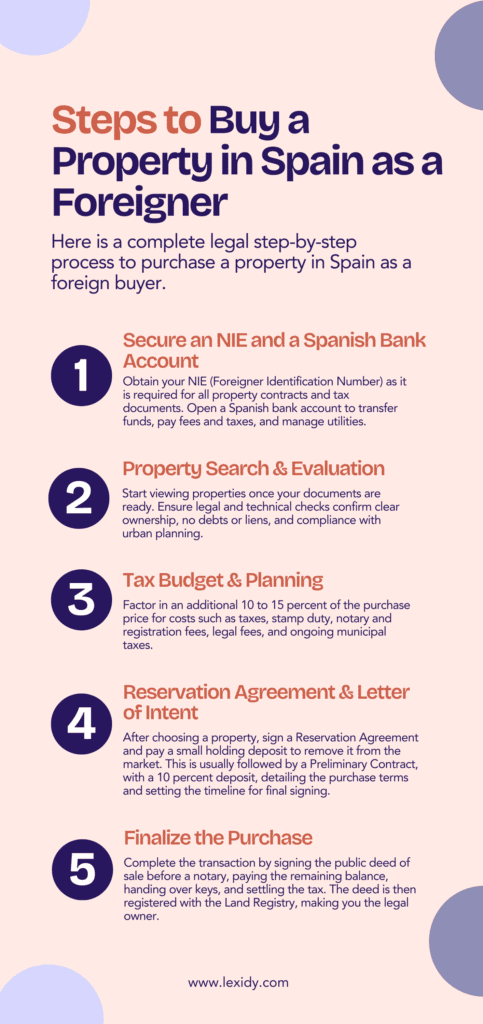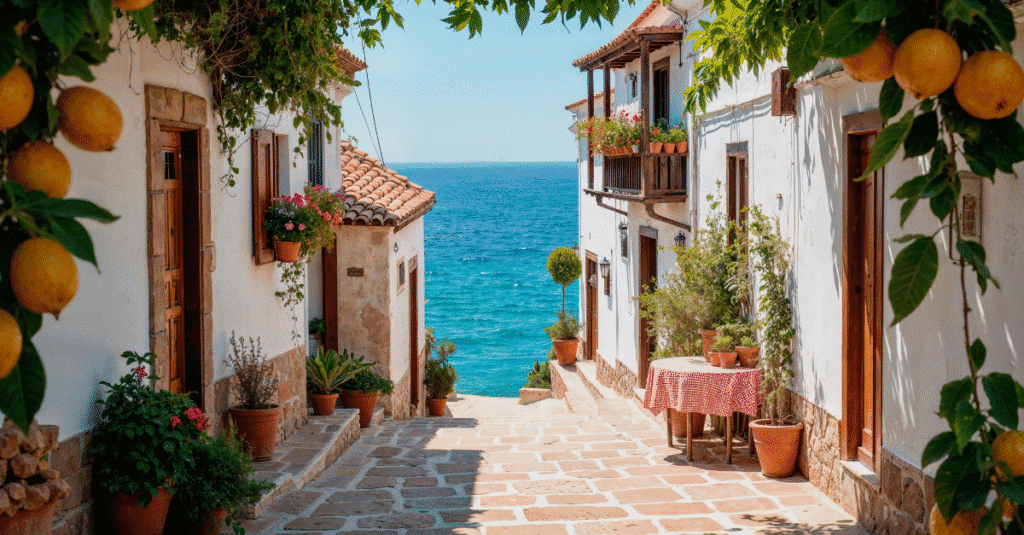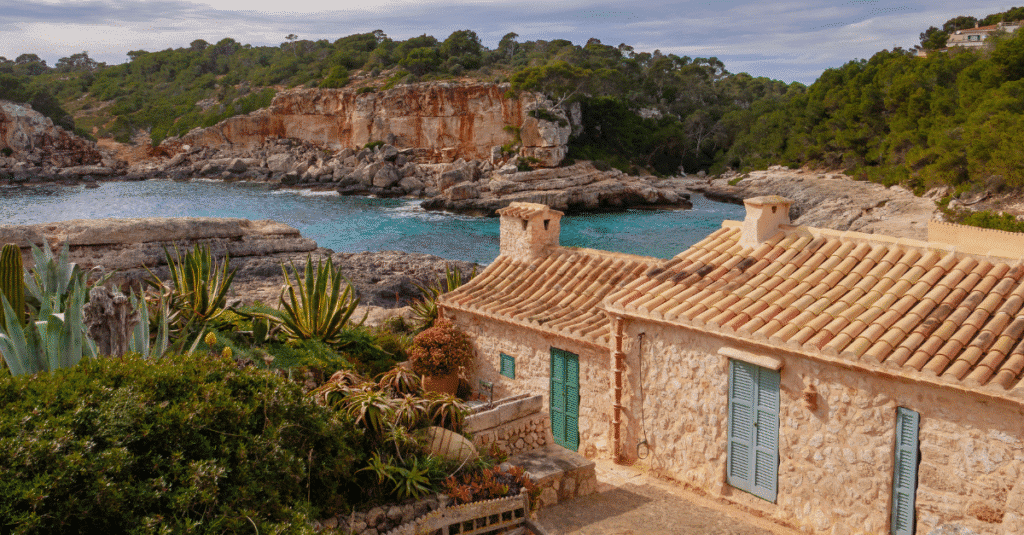Spain continues to capture the attention of global property investors, and it’s not hard to see why. With a Mediterranean climate, rich lifestyle, and relatively affordable housing compared to other European capitals, the decision to buy a property in Spain offers more than just a financial return. It provides access to a lifestyle and market that aligns with today’s global trends: remote work, digital nomadism, and inflation-resistant assets.
Whether you’re looking to generate rental income, secure EU residency, or protect your wealth with a stable long-term investment, Spain remains one of Europe’s most appealing property markets.
This guide breaks down everything foreign investors need to know in 2025, from legal requirements and tax implications to market hotspots and financing strategies.
Table of Contents
- Why Buy a Property in Spain in 2025?
- How to Buy a Property in Spain: The Legal Process
- Tax Considerations for Foreign Buyers
- Financing and Mortgages in Spain
- Is the Golden Visa in Spain Still Available in 2025?
- Key Legal and Financial Risks
- Where to Buy a Property in Spain
- Legal Tips for a Safe Real Estate Investment in Spain
- How Lexidy Simplifies Investing in Spanish Real Estate
- Ready to Buy a Property in Spain?
Why Buy a Property in Spain in 2025?
Spain’s real estate market has come roaring back in recent years. Foreign investment is on the rise again, with international buyers returning in full force post-COVID. What’s driving the renewed interest? A combination of strong rental yields, relatively low property prices compared to other EU hotspots, and a quality of life that continues to attract global talent, retirees, and remote workers alike.
According to CBRE’s Real Estate Market Outlook Spain 2025, real estate investment in Spain is forecast to grow by up to 15% this year, reaching €16 billion. Foreign buyers are drawn by Spain’s stable legal framework, accessibility through various visa schemes, and the tangible benefits of owning property in one of Europe’s most livable countries.
Quick Snapshot: Average Property Prices (2025)
| Region | Avg. Price per m² (€) | YoY Price Increase (%) |
| National Average | ~2,500 | +7.5% |
| Madrid | 3,800–4,000 | +20% |
| Barcelona | 3,800–4,000 | +5–6% |
| Valencia | ~2,300–2,500 | +24% |
| Malaga | 3,300–4,000 | +20–22% |
| Balearic Islands | ~3,800+ | 13–25% |
Spain’s property market continues to offer accessible entry points and meaningful returns. Whether you’re looking to generate rental income or build long-term wealth, the opportunities are here.
Can foreigners buy a property in Spain? Find out who qualifies and how our lawyers help
How to Buy a Property in Spain: The Legal Process

Spain offers a secure and transparent legal framework for property purchases, but the process to buy property in Spain is different from what many international buyers may be used to.
Here’s a breakdown of the key legal steps to help avoid surprises and protect your investment.
1. Securing an NIE and a Spanish Bank Account
Before any contracts can be signed, buyers need to obtain an NIE (Foreigner Identification Number). This is essential for tax and legal purposes and must appear on all official property documents.
Opening a Spanish bank account is also necessary to transfer funds, pay fees and taxes, and handle utility bills once the purchase is complete.
2. Property Search and Evaluation
Once the basics are in place, buyers can begin viewing properties. But beyond aesthetics, it’s important to perform legal and technical due diligence. Spain follows a “buyer beware” model, meaning the buyer is responsible for confirming:
- Clear legal ownership.
- No outstanding debts or liens.
- Urban planning compliance (no illegal construction).
A legal advisor typically performs this check through the Land Registry, Cadaster and Town Hall.
3. Tax and Budget Planning
Additional costs can add up to 10–15% of the purchase price. Planning ahead helps avoid financial setbacks. Expenses include:
- Transfer Tax or VAT (depending on the property type).
- Stamp Duty.
- Notary and registration fees.
- Legal fees.
- Ongoing municipal taxes.
Knowing the total cost upfront makes budgeting more accurate and avoids delays at closing.
4. Reservation Agreement and Letter of Intent
Once a suitable property is selected, the buyer usually signs a Reservation Agreement and pays a small holding deposit to take the property off the market.
This is often followed by a Preliminary Contract (Contrato de Arras), where the buyer pays a deposit (typically 10%). This contract outlines the purchase terms and sets a timeline for the final signing.
5. Finalizing the Purchase
The transaction is completed by signing the public deed of sale (Escritura Pública de Compraventa) before a notary. At this point:
- The remaining balance is paid.
- Keys are handed over.
- The corresponding tax is paid.
- The deed is submitted to the Land Registry, which finalizes legal ownership.
At this stage, the buyer officially becomes the legal owner.
Tax Considerations for Foreign Buyers
When purchasing property in Spain, foreign buyers should plan for additional costs beyond the purchase price. These expenses typically add up to 10% to 15% of the property’s value and include a combination of taxes, legal fees, and administrative charges. Here’s what to expect:
Taxes When Buying Property in Spain
- Transfer Tax (ITP): Applies to resale properties. Rate ranges from 6% to 10%, depending on the region.
- VAT (IVA) + Stamp Duty (AJD): Applies to new build properties. VAT is 10% and Stamp Duty adds another 1% to 1.5%.
- Notary and Land Registry Fees: Combined, these usually total around 1% to 2% of the purchase price.
Legal Fees
Professional legal representation typically costs about 1% of the property value.
Banking and Translation Costs
Additional costs may apply for international transfers, sworn translations, and administrative support, especially if documents must be presented in Spanish.
Ongoing Property Taxes in Spain
- Annual Property Tax (IBI): Similar to council tax. Based on the cadastral value, the rate ranges from 0.4% to 1.1%, depending on the municipality.
Selling or Transferring the Property
- Capital Gains Tax: Tax on the profit from selling your property.
- 19% for EU/EEA residents
- 24% for non-EU residents
- Withholding Tax for Non-Resident Sellers: Spain requires 3% of the sale price to be withheld at the time of sale as an advance on capital gains tax.
Double Taxation Treaties
Spain has double taxation treaties with many countries to avoid being taxed twice on the same income. These agreements can impact the final tax owed on rental income or capital gains. Foreign buyers should confirm how the treaty between Spain and their country of residence applies to them.
Spanish real estate law can be tricky — get expert legal guidance for your property purchase in Spain.
Financing and Mortgages in Spain

Foreign investors can access competitive mortgage options in Spain, even without local residency. While requirements and conditions vary slightly between banks, most major Spanish lenders offer financing to non-resident buyers.
How Much Can You Borrow?
- Non-residents can typically borrow up to 60% to 70% of the property’s value.
- Spanish residents may qualify for up to 80%.
- The loan-to-value (LTV) ratio is based on the lower of the purchase price or the bank appraisal.
Mortgage Types and Interest Rates
Most Spanish mortgages are tied to the Euribor (Euro Interbank Offered Rate), with a choice of:
- Fixed-Rate Mortgages: The interest rate stays the same for the entire loan term. This offers payment stability and protection from market fluctuations.
- Variable-Rate Mortgages: The interest rate adjusts periodically based on the Euribor, which means payments can rise or fall over time. Often starts lower than fixed-rate loans.
- Mixed Mortgages: This option begins with a fixed-rate period, offering stable payments early on. After that, it shifts to a variable rate, which changes with the market for the remainder of the term.
Common Mortgage-Related Fees
| Fee Type | Typical Cost |
| Opening Commission | 0.5% – 1% of the loan amount |
| Property Appraisal | €500 – €900 |
| Stamp Duty | 0.5% – 1.5%, depending on the region |
| Home Insurance | €150 – €400 per year, required by most lenders |
Banks may also require life insurance or additional guarantees, depending on the borrower’s profile.
Want to dive deeper? Read our article on How to Get a Mortgage in Spain as a Foreigner.
Is the Golden Visa in Spain Still Available in 2025?
Spain’s Golden Visa program is no longer available for real estate investment. As of April 3, 2025, purchasing property in Spain no longer qualifies non-EU nationals for residency.
What This Means for Investors
- New real estate investments no longer qualify for the Golden Visa.
- Applications submitted before April 3, 2025 will still be processed under the previous rules.
- Existing Golden Visa holders can retain and renew their residency status.
This change has closed off one of the most popular pathways to live in Spain through property ownership. However, there are still viable alternatives depending on your lifestyle and financial situation.
What You Should Do Now
If you’re planning to invest in Spanish property, be aware that residency is no longer automatically included.
Those seeking to live in Spain full-time should explore alternative visa routes, like the popular Digital Nomad or Non-Lucrative Visa options instead.
It’s essential to align your immigration strategy with your investment goals before committing to a purchase.
Key Legal and Financial Risks

Investing in Spanish real estate can be rewarding, but it also comes with specific legal and financial risks. Here’s what you need to watch out for:
| Risk | Impact | How to Manage |
| Proposed 100% tax on non-EU buyers | Could double resale transaction costs | Monitor legislation; consider new-build or company purchase |
| Short-term rental restrictions | Could block or limit rental plans | Verify licenses, community approvals, registration codes |
| Zoning or renovation issues | Unexpected renovation limits or remediation | Perform technical, legal due diligence |
| Currency fluctuation | Increased costs and payments if EUR strengthens | Use forward contracts, multi-currency accounts |
1. Possible New Taxes for Non‑EU Buyers
Spain is considering a 100% surcharge on transfer tax for non-EU citizens buying resale properties. If passed, this would significantly increase acquisition costs for many international buyers. The measure is still under review and hasn’t become law yet, but it’s a clear signal that the government is tightening its approach to foreign investment.
Buyers looking to avoid this risk may want to explore newly built properties or purchase through a Spanish company structure, both of which could fall outside the scope of the proposed tax.
2. Regional Short-Term Rental Licensing Limits
Recent changes at both the national and regional levels have made short-term rentals more heavily regulated. In most apartment buildings, a 60% vote from the owners’ association is now required to allow short-term rentals.
Additionally, Spain has introduced a national short-term rental registry. As of July 1, 2025, all properties used for short stays must be registered and display a unique license number.
Before buying, especially in high-demand areas like Barcelona, Valencia, or Málaga, it’s essential to verify whether tourist letting is legally allowed and properly licensed. Skipping this step could mean buying a property that can’t legally generate rental income.
3. Renovation or Zoning Surprises
In rural or coastal areas, it’s not uncommon to find:
- Unpermitted extensions or illegal constructions
- Zoning restrictions that block renovation plans
- Variations in urban legality between municipalities
To avoid this, buyers should commission a legal and technical review before signing. Having a lawyer check the Land Registry and Catastro records, and hiring an architect or surveyor to review the site for compliance, will ensure there are no hidden headaches after the purchase.
4. Currency Fluctuation Risk (USD/GBP Buyers)
If you’re purchasing with pounds or dollars, currency fluctuations between your home currency and the euro can significantly impact costs:
- A 5–10% drop in GBP/EUR or USD/EUR can add tens of thousands of euros to the purchase price.
- Ongoing mortgage payments or tax liabilities may rise if your home currency weakens.
Consider a forward contract or use a multi-currency bank account to lock in exchange rates. If financing in euros, assess your ability to service the loan if your home currency weakens.
Where to Buy a Property in Spain
Spain offers a wide range of property markets to suit different investment goals, whether you’re focused on rental income, long-term appreciation, or lifestyle value. Below are the top regions to buy property in Spain, based on price growth, tourism trends, and rental demand.
High-Growth Markets
Valencia

One of the fastest-growing cities for foreign buyers. More affordable than Madrid or Barcelona, but with rising international interest. Ideal for long-term rentals, especially among remote workers and young families.
Rental Yield Potential: 5%–6%
Málaga

A growing tech and tourism hub on the Costa del Sol. Strong year-round rental demand, excellent infrastructure, and international schools make this market especially attractive.
Rental Yield Potential: 5%–7%
Bilbao

An underrated but emerging market in northern Spain with a strong local economy and rising demand. Prices remain relatively accessible, offering room for appreciation.
Rental Yield Potential: 4%–6%
Luxury and Resort Markets
Marbella

Known for high-end villas, golf resorts, and international prestige. Appeals to lifestyle buyers and investors in the luxury holiday rental segment.
Rental Yield Potential: 4%–5% (higher in peak seasons)
Palma de Mallorca

A consistent favorite among second-home buyers and upscale tourists. Limited inventory supports long-term capital growth and steady short-term rental demand.
Rental Yield Potential: 4%–6%
Urban Investment Hubs
Madrid

Spain’s capital is a reliable market for long-term rentals, especially from professionals, students, and corporate tenants. Steady appreciation and low vacancy rates.
Rental Yield Potential: 3.5%–5%
Barcelona

Offers strong rental returns, though short-term rental regulations are tightening. Best suited for long-term rental strategies or lifestyle buyers seeking urban appeal.
Rental Yield Potential: 4%–5%
Legal Tips for a Safe Real Estate Investment in Spain
Spain’s property system offers strong legal protections, but only if you follow the correct steps. These tips can help foreign investors avoid costly mistakes and ensure that every part of the transaction is legally sound.
Hire a Bilingual Real Estate Lawyer
Hiring a lawyer who speaks both Spanish and your native language is essential. They can guide you through contracts, translate key documents, and ensure compliance with local laws.
Choose the Right Ownership Structure
Depending on your tax profile, you may benefit from purchasing the property as an individual or through a Spanish company. This decision affects not only your tax obligations but also succession planning and potential liability. A lawyer can advise on the most efficient setup based on your long-term goals.
Secure Contracts with Protective Clauses
Before paying any deposit or signing a reservation agreement, make sure the contract includes protective clauses. These should cover:
- Clear refund terms if the sale falls through
- Confirmation that the seller is the legal owner
- Deadlines for inspections, mortgage approvals, and closing
Well-drafted contracts prevent disputes and give buyers room to walk away if red flags appear.
Request an Updated Nota Simple
The Nota Simple is a document issued by Spain’s Land Registry that outlines who legally owns the property, whether there are debts or mortgages on it, and its registration status. Always request the most recent version. This is your first line of defense against fraud or hidden liabilities.
Use a Notary and Formal Public Deed
In Spain, real estate transactions are finalized in front of a notary, who oversees the signing of the public deed of sale (Escritura Pública de Compraventa). The deed must then be registered with the Land Registry to ensure full legal ownership. Skipping this step could leave your purchase unprotected.
How Lexidy Simplifies Investing in Spanish Real Estate

Navigating Spain’s property market can be complex, especially for international buyers unfamiliar with local laws, processes, and language. That’s where expert legal support makes a difference.
From the first steps to final registration, here’s how Lexidy’s legal team simplifies the process at every step:
- Legal Due Diligence: Complete verification of ownership, debts, zoning, and legal compliance before you commit.
- Contract Drafting and Review: Secure agreements that protect your interests, including reservation contracts, deposits, and final deeds.
- NIE Setup and Banking Support: Fast-track assistance with obtaining your Foreigner Identification Number (NIE) and opening a Spanish bank account.
- Tax Guidance: Clear breakdowns of property taxes, ownership structures, and potential liabilities, tailored to your country of residence.
- Mortgage Coordination: Help connecting with Spanish lenders, preparing financial documentation, and reviewing loan terms.
With trusted legal professionals who understand both local regulations and international concerns, Lexidy makes the process of buying property in Spain smoother and safer for global clients.
Start your property investment journey today — speak with a lawyer who understands the Spanish market.
Ready to Buy a Property in Spain?
Spain remains one of Europe’s most dynamic and rewarding real estate markets. With strong growth forecasts, an enviable lifestyle, and high demand for both long- and short-term rentals, 2025 offers real opportunities for foreign investors ready to act strategically.
While the end of the Golden Visa has shifted the landscape, Spain still welcomes global buyers, especially those who are well-prepared. The key to success lies in understanding the legal framework, planning for taxes, and choosing the right location and ownership structure for your goals.
Before you invest, take the time to clarify your strategy, run the numbers, and secure trusted legal support.
Ready to buy a property in Spain? Fill out the form below to get started!

